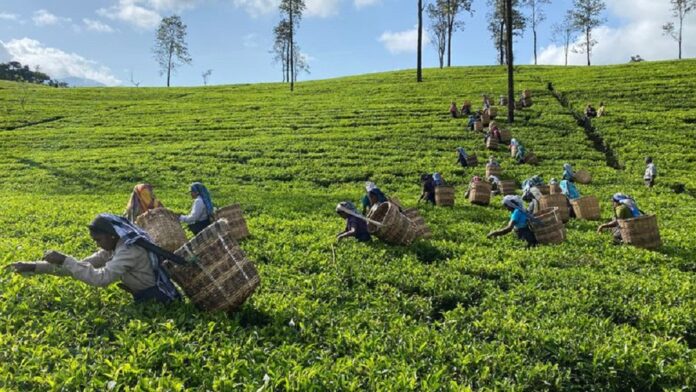October 27, Colombo (LNW): Sri Lanka’s long-established plantation industry — centred on tea, rubber, and coconut — continues to underpin the national economy, offering a strong platform for renewed growth amid the government’s ongoing economic reform drive, according to Senior Economic Adviser Dr Arosha Fernando.
Speaking on the sector’s enduring importance, Dr Fernando noted that plantations remain one of Sri Lanka’s most resilient industries, employing more than half a million workers and sustaining thousands of rural families.
Recent data reveals that the country produced approximately 262 million kilogrammes of tea in 2024, generating export earnings in excess of USD 1.3 billion. However, the sector continues to grapple with challenges such as erratic weather, rising production costs, and volatile global commodity prices.
Tea production, for instance, recorded a 6.3% decline in June 2025 following prolonged heavy rains in several growing regions. Rubber exports have also been affected by global demand fluctuations and reduced tapping yields. Despite these setbacks, the plantation economy has shown encouraging signs of recovery, with export figures for tea, coconut, and related products rebounding in early 2025.
Dr Fernando emphasised that the future of Sri Lanka’s plantation industry depends on strategic modernisation and value addition rather than reliance on traditional commodity exports. “By investing in premium and niche categories such as organic teas, speciality blends, and sustainably branded Ceylon products, Sri Lanka can strengthen its global market presence and command higher returns,” he said.
Industry experts are also urging diversification beyond raw exports. Expanding downstream processing — such as converting coconut into value-added products like virgin oils and fibre-based materials, and developing high-end rubber goods for industrial and eco-friendly applications — could significantly enhance export competitiveness.
Beyond product innovation, Dr Fernando underscored the need for policy support in areas like climate-resilient cultivation, advanced mechanisation, and worker welfare. He further highlighted emerging opportunities in plantation-linked tourism and digital traceability systems, which can provide transparency to international buyers and strengthen Sri Lanka’s reputation for ethical and sustainable production.
